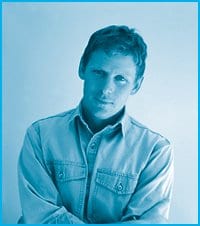Seeing that there are myriad reasons and expectations for travel, it makes perfect sense that travel writing is so elastic.
Its mainstream-ranging from Cheap Eats in Reno to Asia on a Shoestring-keeps practicality at heart, finding easy solutions to the problem of food, sights and accommodation in a limited number of days.
By contrast, the genre’s esoteric margins (exemplified, for example, by the writings of Jan Morris or Pico Iyer) intermingle politics, history, philosophy and sociology in order to ponder the significance of the cross-cultural experience.
As a sub-genre, gay travel writing is likewise elastic. Its popular guides commit to safety and fun as their key purpose. (And sometimes only fun: in one recent online article, Work Out or Kick Back?, a reporter who was curious “whether even the hottest guys ignore the gym on vacation” took a gay Mediterranean cruise in order to answer the burning question, “What got more play, the weight room or the deck parties?”)
Meanwhile, our literary travelogues (such as Edmund White’s The Flaneur) filter visits to specific locales through queerly unique personal experiences and perspectives.
The two faces of travel writing are important to keep in mind when considering The Last Heathen: Encounters with Ghosts and Ancestors in Melanesia. That’s because Charles Montgomery, the book’s gay Vancouver-based author, clearly has no interest in a putting together a “What’s Hot in the Tropics?” guide.
While his debut publication (its launch here last month accompanied by the furious eruption of a homemade volcano) Montgomery does vividly sketch the five months that he spent on some of the islands comprising that South Pacific expanse, its goal is not to report about posh hotels or not-to-be-missed beaches.
And Montgomery’s sexual abstinence during his trip, moreover, will discourage a reader on the hunt for sultry eroticism à la Gauguin or tips about where to cruise on Vanuatu.
What his book offers readers instead is a captivating and evocative tale that’s thoughtful yet entertaining. Montgomery, an award-winning journalist, can spin stories with brio.
Speaking with the author on my balcony during a dazzling late September afternoon, it’s evident-even though our conversation meanders crazily-that the motivations for his quest were a complicated mixture of rational plans and unconscious impulses. His was a personal and political journey, a complex quest to search for truth, facts and enchantment.
So while he writes of searching for a “remote shore unspoiled by European religion and commerce,” he speaks of the impact of European colonialism, his English great-grandfather’s Melanesian missionary work in the 1890s and of his desire to investigate them.
Montgomery notes, “We carry so much with us on our journeys. I travelled there as a white middle-class gay man with a background in journalism and a suspicion of authority and consumer culture. I think it made me, in general, more wary of the accepted meanings of history and culture.
“I didn’t trust the official story,” he says, but adds that his motives weren’t entirely impersonal. “I told people I was pursuing things like the legacy of Victorian missionary work, but I wanted more than that. I craved the same thing everybody else does when they go away: I wanted to be changed.”
The far-flung islands he explored did not, of course, precisely match his various expectations, and his eye opening forms the core of his book.
These islands were also an unconventional destination for an urban gay man-if only because for Montgomery there was virtually no queerness on them to be found.
Montgomery tells me of some renegade anthropologists who believe in an ancient homosexual tradition in Melanesia, but points out contemporary island society is a fundamentally conservative Christian one. “Almost all the Melanesians I met could not seem to imagine what homosexuality is. And those who could would completely abhor it,” he says. “It is a sexually segregated society and yet a homosocial one. It was a bit confusing. The men were physically demonstrative; quite often you’d see them holding hands.
“I remember meeting exactly one gay guy, a hairdresser, Filipino, I think, in Port Vila [the capital city of Vanuatu, population 34,000]. As gay men we’re forever looking for that second glance over the shoulder. After being there for a while, I just gave up and resigned myself to the fact that it was going to be a lonesome journey.”
With a grin he recalls “some crumbs” he was thrown: holding hands with a Melanesian male. “It was genuine intimacy, and I squeezed back.” It was fraternal affection, he concludes, “and that was all.”
Travels complete and book launched in Canada, Montgomery’s immediate plans include taking another kind of journey: revising The Last Heathen for his US publisher. He’s still got the travel bug, though, and imagines that it won’t be too long before he’s packing his bags once again.

 Why you can trust Xtra
Why you can trust Xtra